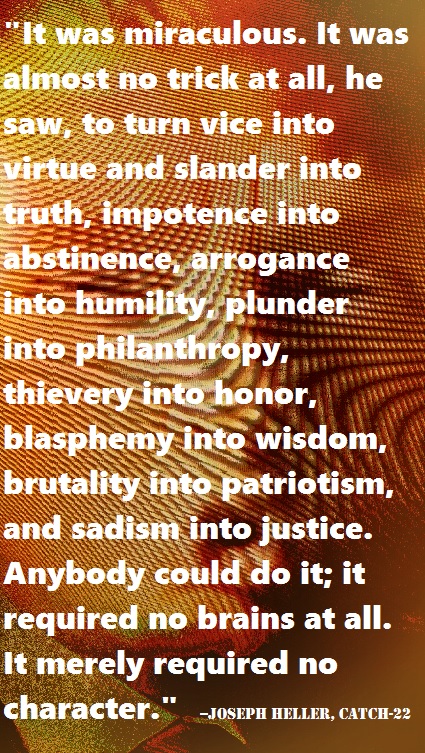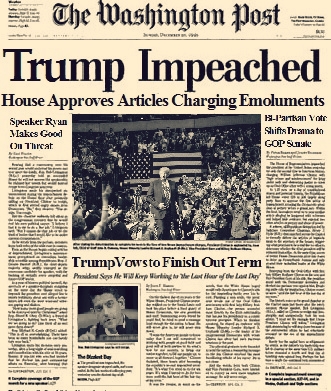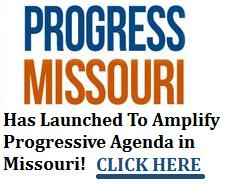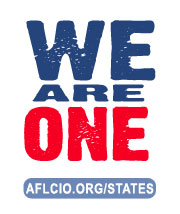Mormonism, let’s be honest, is a strange faith.
Now, I don’t think it is substantially weirder than most of the religions we are used to, what with their talking animals, virgin births, and dead folks popping up here and there and eventually everywhere. But because it is a relatively modern faith, born in the 19th century, one would have expected it to be, well, a little more sophisticated.
And because a devout—is there any other kind?—Mormon has a good chance of becoming president this year, it is fair to note just how odd are some of the beliefs of Mormons, especially since there are only about 14 million of them in the world (there were only about 1 million when Mitt Romney was born) and they constitute a rather unique group of believers.
It is also fair to examine Mormonism because Romney has been a Mormon missionary, was partly educated in Mormon schools, has served as a Mormon bishop in Massachusetts, and gives a great deal of money to the Mormon Church.
While there are plenty of places on the web where one can check out the various bizarre beliefs tied to Mormonism—like Jesus making a pit stop in the Americas after his resurrection—I want to focus on one that I think reveals not only how creative Mormons can be, but how useful one of their doctrines can be for we liberals. It is called “baptism of the dead.”
Yep, that’s right. They do it. It is a religious ritual of the church, even though some non-Mormon folks want them to stop:
The point, I gather, of proxy baptism is to cut some long-distance slack to those unfortunate souls who passed away without the benefit of a real-time dip in the drink. You see, without that brief immersion in water, one cannot visit the Kingdom of God, or in the case of Mormonism, the Kingdoms of Gods. Apparently, our Higher Power(s) is (are) fond of folks who have taken the plunge, whether they actually took the plunge or conveniently had a descendant do it.
In any case, there is available a handy list of “Prominent People Mormons Have Baptized by Proxy,” should you want to know if your favorite hero of history got his or her belated bath. I am happy to report that Albert Einstein is on the list, although Elvis Presley is not, an oversight that perhaps Mitt Romney can help with, since he has actually done him some post-death baptizin’:
When asked by NEWSWEEK if he has done baptisms for the dead—in which Mormons find the names of dead people of all faiths and baptize them, as an LDS spokesperson says, to “open the door” to the highest heaven—he looked slightly startled and answered, “I have in my life, but I haven’t recently.”
I just want to say that I think there is a kind of charm associated with baptizing people long dead, in hopes that they can get out of the nosebleed section in the hereafter. It is at least thoughtful of others, a kind of baptismal salute to socialism.  As we discover in the Journal of Discourses:
As we discover in the Journal of Discourses:
The greatest responsibility in this world that God has laid upon us is to seek after our dead.
Or how about the following socialistic spirituality, as expressed by founder Joseph Smith:
And now, my dearly beloved brethren and sisters, let me assure you that these are principles in relation to the dead and the living that cannot be lightly passed over, as pertaining to our salvation. For their salvation is necessary and essential to our salvation, as Paul says concerning the fathers—that they without us cannot be made perfect—neither can we without our dead be made perfect.
You see how nice that is? It’s like saying, “If everyone can’t be saved, then none of us can be,” or “All for one and one for all.” Charming, caring, civilized.
And this is where this sentiment can prove useful to liberals: All we have to do is get Mitt Romney—who has baptized people on behalf of the dead—to take that same idea—”their salvation is necessary and essential to our salvation“—and apply it to universal health care: if all can’t get coverage, then none of us gets it!
That ought to go over well in the GOP primary, don’t you think?









Gene Garman
/ February 23, 2012Ah, the wisdom of the Founding Fathers when in 1787 they wrote the first religion commandment into the Constitution, “no religious test shall ever be required as a qualification to any office or public trust under the United States,” Art. 6., and of the First Congress, in 1789, when it promptly followed up with the First Amendment: Congress shall make no law respecting an establishment of “religion.”
LikeLike
Herb Van Fleet
/ February 23, 2012According to Wikipedia, “On June 27, 1844, an armed mob with blackened faces stormed Carthage Jail where Joseph Smith and [his brother] Hyrum were being held. Hyrum, who was trying to hold the door, was killed instantly with a shot to the face. Smith fired a pepper-box pistol that had been smuggled into the prison, then sprang for the window. He was shot multiple times before falling out the window, crying “Oh Lord my God!” He died shortly after hitting the ground. Smith was buried in Nauvoo [Illinois]. Five men were later tried for his murder, but all were acquitted.” Smith was clearly resolute in his opposition to reform. That’s what happens when you fail to Kolob-erate.
LikeLike
Jim Wheeler
/ February 23, 2012I have in the past criticized the LDS religion for the reasons Duane lays out, i.e., that its history and concepts seem strange and, as he says, hardly believable to any rational inquiry. I have little personal experience with Mormons, although I have known a couple and must say that they were above reproach in every way so far as I could tell. In fact, considering the sad state of the vanishing American family with about 50% of all births being to unwed mothers I submit that the entire country would benefit enormously if everyone behaved as well as Mormons. But again, as Duane says, one could say that about virtually all religions.
When a man runs for high public office I consider everything about him fair game for public discussion, and that includes his religion. My principle concern with Mr. Romney’s religion is that the LDS Church is demonstrably more effective than other Christian faiths in its control of its adherents. It demands conformance to its rules, including mandatory tithing, and apparently achieves virtually full compliance. Not even the Roman Catholic Church can say that. But power corrupts and what we have in the LDS Church is a demonstrated epitome of religious power.
When a church can demand behavior by controlling access to eternal life, I find that at variance with Constitutional principles of freedom. In other words it is not the moral qualities of most Mormons that concern me but the potential for irrational influence by LDS authoritarian leaders.
The Catholic Church of course presents a current example of abuse of authority by religious leaders for having hid and protected sexual abuse by priests. Am I wrong to be skeptical that LDS Church leaders might have some similar potential for abuse of authority? There is evidence of some mischief by them, albeit it was a long time ago, the 1857 Mountain Meadows Massacre, an event easily researched on Wikipedia.
The unusual degree of control by LDS church leaders appears so far as I can tell to be matched only by Islam. I’m sure we are all aware of the violent rioting now taking place in Afghanistan over nothing more than the mistaken burning of copies of the Koran, something that seems of small importance to non-Muslims. When religious issues are at issue, rationality hardly matters.
There appears to me to be some consistent pressure on the part of GOP factions to meld religion with government. Mr. Bush II had “faith-based initiatives” venturing into that area and Mr. Santorum would surely carry that much farther. What Mr. Romney would do in that regard is a mystery to me, but the potential for such is troubling, simply because of the First Amendment’s stricture. I find it significant that the state of Utah is dominated by the LDS Church.
LikeLike
hlgaskins
/ February 26, 2012“considering the sad state of the vanishing American family with about 50% of all births being to unwed mothers I submit that the entire country would benefit enormously if everyone behaved as well as Mormons.”
American Divorce Rates:
“27% of born-again Christians have had at least one divorce
24% of all non-born-again Christians have been divorced
21% of atheists have been divorced
21% of Catholics and Lutherans have been divorced
24% of Mormons have been divorced
25% of mainstream Protestants have been divorced
29% of Baptists have been divorced
24% of nondenominational, independent Protestants have been divorced”
Note that the highest listed divorce were among born-again Christians and Baptists, and the lowest rates were among Catholics, Lutherans, and atheists at 21%. The nest lowest rates (24%) were among Mormons and ” nondenominational, independent Protestants.”
http://www.christianpost.com/news/divorce-rates-high-in-southern-bible-belt-states-54539/?utm_source=feedburner&utm_medium=feed&utm_campaign=Feed%3A+delicious%2Fgqlf+%28Christian+Headlines+Top+Headlines%29
How about education and age as a factor?
“Some state-level patterns of marriage and divorce correlate with the overall socioeconomic characteristics and political behavior in those states. This does not mean that one pattern causes the other to happen, only that both tend to be true in the same place.
A state’s education levels, for example, tend to be associated with the median age at marriage and the multiple-marriage patterns of its residents. In states with high shares of college-educated adults, men and women marry at older ages, a finding supported by other research indicating that highly educated individuals marry later in life. In states with low shares of college-educated adults, adults are more likely than average to marry three or more times. In states with low income levels, men are more likely than average to have been married three or more times.”
http://pewresearch.org/pubs/1380/marriage-and-divorce-by-state
Now wouldn’t you know it, that “red states” have higher incidences of divorce than “blue states?” Even worse is that teenage pregnancies and interest in pornography also appears to be higher in “red states.”
LikeLike
Jim Wheeler
/ February 27, 2012Nicely done, HL. I don’t know about others, but you certainly surprised me and you caught me assuming something that wasn’t true, that Mormons as a group were more stable in marriage than other cohorts. From the data you provide it looks to me like people are people, and that religiosity, if anything, might tend to make families a little less stable than otherwise.
Thanks for working this out.
LikeLike
R. Duane Graham
/ February 27, 2012HLG,
I join Jim in thanking you for this valuable contribution to the debate. What does it say about the truth behind religious claims, if religious beliefs don’t serve to change significantly the relative behavior of those who swear to stay married?
Duane
LikeLike
ansonburlingame
/ February 23, 2012Ok, here I come, or go,
First to Jim, a reasonable reply considering your expresion of concerns that you have made in other blogs, comments, etc. Basically you have a distrust of the Mormon faith, based primarily on your own research. Duane I suspect has such distrust of the foundations of that faith as well. Actually I don’t have to “trust” such, he said it above, a “strange faith”.
Might I submit ( and as Duane said above) that ALL “faith” today is “strange” based on real science. One cannot be a Christian, at least in their heart, without accepting a virgin birth and ressurection from the dead of Christ. To be an “officer” (elder, deacon, etc.) in any Christian Churh today one must “attest” by oath to such beliefs. Strange, today, by scientific standards? I would certainly say so.
I will also say that Jim and I exchanged a couple of “strong” but private, emails on this subject related to the distrust my many Americans over Mormonism. To me their theology is indeed sort of “crazy”.
But in terms of politics, I could care less what the theology of ANY church might be or if a candidate is a “member” or any church. Frankly, I don’t care if a Muslim runs for the Presidency.
All faiths with which I am familar, even Islam, have basic, common virtues that are dictated. Things like honesty, fidelity in marriage, industriousness, frugality, etc. etc., I find common to ALL faiths. And that in my view is GOOD. I LIKE those kind of characteristics in any publc offiical and they are common to all faiths in America, PARTICULARLY for Mormons. Try being a member of that church and sneak a “drink or cigarette” in a Mormon community. They will simply not put up with it and kick your butt our to fhe church if you persist.
On the other hand if you live as a non-Mormon in a Mormon occupied area, like SLC, etc. you can smoke and drink all you like. Just don’t wander the streets looking for a prostitute. You won’t find them anywhere around!
Bottom line for me is a “Mornon White House” under Romney will be absoulutely no different from a “Catholic White House” under JFK. Actually that is wrong. In Romney’s White House the secret service will NOT be sneaking in the various “personalities”, lady like personalities of the Kennedy White House. And YEP, no blue dresses to worry Americans as well despite any government shutdowns!
Don’t look at Romney’s religion. Look as closely as you can at his inate character in terms of “virtues” common to all religions., And yes, Romney I am sure can “square” such characteristics with his policies as well. All you have to do is listen and not worry about planet Koldor or whatever it is called.
Anson
LikeLike
ansonburlingame
/ February 23, 2012I must add,
I lived and worked in Las Vegas ( with a large Mormon community therein) for two years. Many of the folks in the workforce, at all levels of my company were Mormons. Many of the government officials (DOE) that I dealt with on a day to day basis were Mormons. I have been on business trips with such men and women, dealt in contract issues with them, dealt in normal labor-management disputes with Mormons.
They are no different, professionally than any other professional in the work place, EXCEPT, you can take it to the bank that they will NOT lie, cheat or steal, period. Their “faith” will not allow them to do so, far more than other faiths or lack thereof that I have dealt with professionally.
If I had to sit across the table in a tough professional negotiation, I would pick a Mormon on the other side right out of hand. I would KNOW that what he says is true and he will back it up with all his “faith” possible. THAT is a good way to conduct business or national affairs, in my view.
Anson
LikeLike
helenofmarlowe
/ February 23, 2012Has that been true of Romney, in the campaign? What about the 100,000 jobs he claims to have created at Bain? And Romney’s claims that Obama has made huge cuts to our military? Or his contention that Obama wants to turn American into an entitlement society? I don’t have the time or space or knowledge to itemize the occasions of Romney’s attempts to make voters believe things that are not true, but really, Anson, do you really mean that you will believe without question anything Romney says? Because he is a Mormon?
LikeLike
ansonburlingame
/ February 23, 2012No Helen, I do not believe that because Romney is a Mormon he is any more trustworthy than any other policiticans. He after is all is a poiliticain and all politicians spin their message, Obama, Romney, anyone else running for polticial office.
My only suggestion is that we not judge him for his religion, but only judge him for his policy pronouncents. I don’t belive Momon politicians are better than policiticians from other faiths. But as well I do not belive they are worse than other politicians in basic values that might count than policiticias from other faiths of lack thereof as well.
Religion and politics should NOT be the debate. It is the policies proposed in an election campaign, belive them or not, that count.
Ansnon
LikeLike
Gene Garman
/ February 24, 2012Need I repeat?
“No religious test shall ever be required as a qualification to any office or public trust under the United States,” Founding Fathers, 1787, Art. 6., Sec. 3., U.S. Constitution; ratified by the states of the United States, 1788.
Presidents like Washington, Jefferson, and Madison were, at most, outright deists, not communing members of any Christian church. Jefferson claimed to be a unitarian, as did Adams. My, what if we had an outright atheist file for President? A Buddhist, Hindu, or Wiccan?
When will the American people recognize and accept the Constitution as written by the Founding Fathers and as ratified by the states? The very First Amendment plainly commands: “no law respecting an establishment of RELIGION.” Note, the word “church” is not in the Constitution.
http://www.youtube.com/watch?v=Yb7SbUWw9dM
LikeLike
Jim Wheeler
/ February 24, 2012I believe you are missing the point of this post, Gene. The issue is not about overturning the Constitution relative to religion but rather how a candidate’s faith might affect his decisions, as in “faith-based initiatives” for example. I can also easily envision educational mandates regarding the teaching of evolution or other topics of interest to religious groups. Such tinkering can be done outside of any overt religious label, and has been. And how about the whole area of tax treatment of religious and charitable activities? There is much to ponder relative to a candidate’s faith. The electorate would be remiss to ignore any aspect of a presidential candidate’s personality or history, and that includes his faith, in my opinion.
LikeLike
ansonburlingame
/ February 24, 2012Gene,
Some people defend their faith, or lack thereof, with great vengence, even to “the death” so to speak. Words on paper will never stop them from doing so.
But you are correct, in my view, on what the Founders and many others following them have tried to do, keep the zealots in a small minority. How to do so is by rational discussion, not force of government, again in my view.
But if such zealots in fact gain the power of government, well I can only say “God help us”. Just look at Iran today as an example.
Anson
LikeLike
brucetheeconomist
/ February 24, 2012Duane, at first I thought you were attacking the Mormon Church, but I think the thrust of your post is more to draw a kind endorsement of socialism from the Church’s doctrain. I think you could do the same with words of Jesus, though I wouldn’t consider that ironclad proof of the superiority of socialism.
LikeLike
R. Duane Graham
/ February 27, 2012Bruce,
Sometimes my sarcasm doesn’t transmit to everyone the way I wish it did (and often that is my fault).
I don’t support socialism as an economic system, as I believe capitalism can be reformed and regulated to provide a superior way of organizing ourselves.
My point was that the principle expressed by a founder of the hyper-conservative Mormon Church (albeit it tied to the ludicrous doctrine of baptism for the dead) actually supports a robust form of socialistic practice like providing health insurance for all. I mean if we can’t rest comfortably in the hereafter unless our ancestors are “made perfect” (Joseph Smith’s words), then how can we rest in the here-and-now knowing that folks are going without adequate health coverage?
And by the way, I believe one can look at the overall teaching of Jesus (as well as other parts of the Old and New Testaments) and derive a defense of socialism (the real kind) from them. But like most things in the Bible, one can hop around the book and pick out proof texts for nearly every point of view—you know, like the defense of slavery in the 18th and 19th century.
Duane
LikeLike
Herb Van Fleet
/ February 27, 2012EC,
Just a couple of things. Regarding socialism and religion, it should be clear anyone who reads the New Testament that Jesus and his followers were so far left of today’s liberals that a case can be made that they were actually collectivists, arguably organized as communists with the apostles, and later the Catholic hierarchy, functioning as a Politburo.
I posted my evidence for this notion on Geoff’s blog a few weeks ago when he was making his usual disparaging remarks about Obama, this time on Obama’s State of the Union address. Here are a few of my comments that may be pertinent here:
“Now, as to this post, you start off with a quote from Obama in his State of the Union speech followed by a quote from Karl Marx. First of all, that just confirms my charge that the right wing nuts actually believe the liberals are communists. But I think Marx must have gotten his inspiration from the bible:
Acts 4:32-35 (NIV)
“All the believers were one in heart and mind. No one claimed that any of their possessions was their own, but they shared everything they had.
“With great power the apostles continued to testify to the resurrection of the Lord Jesus. And God’s grace was so powerfully at work in them all
“that there were no needy persons among them. For from time to time those who owned land or houses sold them, brought the money from the sales
“and put it at the apostles’ feet, and it was distributed to anyone who had need.”
“So, Christians are Communists too?
“As to the bible stuff, it seems pretty clear to me that Jesus was/is the poster boy for liberalism. I see the Sermon on the Mount (Matthew 3-7) as the Christian philosophy. This is where we find the beatitudes (“the meek shall inherit the earth”), turn the other cheek (“Give to the one who asks you, and do not turn away from the one who wants to borrow from you)”, love your enemies, you can’t serve two masters (“You cannot serve both God and money”), and “Do not judge, or you too will be judged,”
“Later on in Matthew 19:23, we have, “Truly I tell you, it is hard for someone who is rich to enter the kingdom of heaven. Again I tell you, it is easier for a camel to go through the eye of a needle than for someone who is rich to enter the kingdom of God.” There are many other examples, but you get the point.
“While it’s true that Jesus is talking about individuals redistributing wealth and not the government, the ideas are still liberal under the definition of liberalism, which is a commitment “to the ideal of limited government, constitutionalism, rule of law, due process, and liberty of individuals including freedom of religion, speech, press, assembly, and free markets.” (From Wikipedia)
Of course, the right wing fundamentalists have long since rationalized their way around this dilemma. But then that’s the whole problem with religion in the first place isn’t it?
Herb
LikeLike